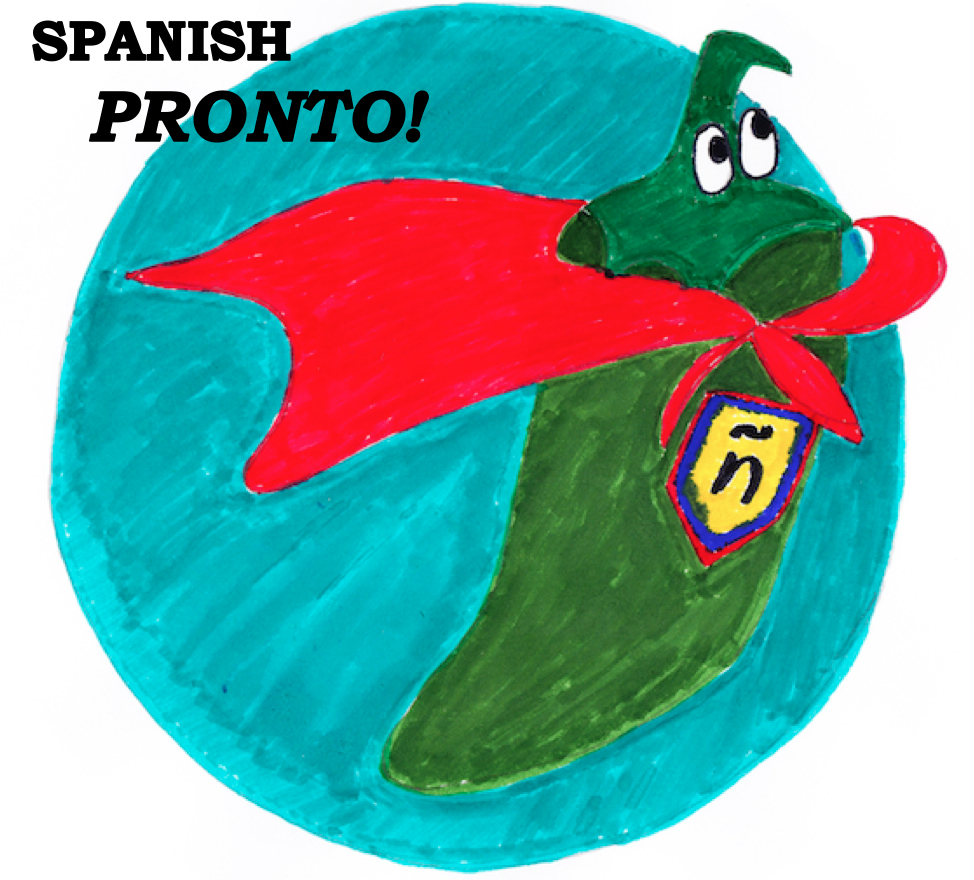
Spanish Vocabulary
Learn 10 Spanish words per day and know 2,500 words after one year!Many words in Spanish and English are similar, but similar words can have very different meanings, so be careful.
yo Inosotros/nosotras we
vos (= tú!) you(informal)
vosotros/vosotras you all(informal), y'all
ya already; ya no no longer
todavía still; todavía no not yet
también also
fue he/she/it was, you(formal) were; he/she/it/you(formal) went
era he/she/it was, you(formal) were
muy very
Words pronunciation: 0:29 (29s)
'Vos' is used—instead of 'tú'— in certain countries (Argentina, Costa Rica) and certain parts of other countries. Think of vos as being the same as tú, which for all intents and purposes it is, and you will never be confused.
To get the 'vos' form of any verb in present tense, with one exception, replace the 'r' at the end of the verb with an 's' and accent the preceding vowel: COMER (to eat) => vos comés (you eat); TENER (to have) => vos tenés (you have); VIVIR (to live) => vos vivís (you live); etc. The one exception is SER (to be) => vos sos (you are).
'Vosotros/vosotras' is used only in Spain and is used to address a group of people who are children, friends, or people you are close to. Think of it as being similar to "y'all" in the South (of the United States). Just as y'all is not generally used outside of the South, vosotros/vosotras is not generally used outside of Spain. In other Spanish-speaking countries, to address a group of children, friends, or people you are close to, you would still use "ustedes" (the 'formal' form).
'Fue' means that, at a certain specific time in the past, something 'was'. ['perfect' (actually, 'preterite') tense = 'completed' action] (!)
'Era' means that, in the past, something 'was being,' or 'used to be,' or 'was being done on a habitual basis' ['imperfect' tense = action that was not completed, but was continuing (in the past)] (~~~~~~~)
In stories, the preterite tense (!) is used to describe the action, and the imperfect tense (~~~~~~~) is used to describe the setting (how things were or what was happening when the action took place):
It was (~~~~~~~) evening, and I was (~~~~~~~) watching TV, when the door slammed (!). From the kitchen, I could hear (~~~~~~~) something rummaging through the trash. I went (!) to look and saw (!) that it was (~~~~~~~) a bear.
In that last sentence, when I went, I went and was then done going (completed action = preterite), I saw and was then done seeing (also preterite), and the bear was a bear but was not done being a bear (continuing 'action' = imperfect).
'Fue' is the preterite tense of two different verbs: SER (to be) and IR (to go).
¿(vos) venís a la fiesta? are you coming to the party?ya comí I already ate
cuando era niña when she was a girl
¿quién era? who was it?
era mi novio it was my boyfriend
¿cuándo fue? when was it?; when did he go?
fue ayer it was yesterday; he went yesterday
Examples pronunciation: 0:22 (22s)
© 2017-2018 Chris Marquardt, Spanish Pronto
http://www.spanishpronto.com/vocabulary_0001.html
http://www.spanishpronto.com/vocabulary_0002.html
http://www.spanishpronto.com/vocabulary_0003.html
http://www.spanishpronto.com/vocabulary_0004.html
http://www.spanishpronto.com/vocabulary_0005.html
http://www.spanishpronto.com/vocabulary_0006.html
http://www.spanishpronto.com/vocabulary_0007.html
http://www.spanishpronto.com/vocabulary_0008.html
http://www.spanishpronto.com/vocabulary_0009.html
http://www.spanishpronto.com/vocabulary_0010.html
http://www.spanishpronto.com/vocabulary_0011.html
http://www.spanishpronto.com/vocabulary_0012.html
http://www.spanishpronto.com/vocabulary_0013.html
http://www.spanishpronto.com/vocabulary_0014.html
http://www.spanishpronto.com/vocabulary_0015.html
http://www.spanishpronto.com/vocabulary_0016.html
http://www.spanishpronto.com/vocabulary_0017.html
http://www.spanishpronto.com/vocabulary_0018.html
http://www.spanishpronto.com/vocabulary_0019.html
http://www.spanishpronto.com/vocabulary_0020.html
http://www.spanishpronto.com/vocabulary_0021.html
http://www.spanishpronto.com/vocabulary_0022.html
http://www.spanishpronto.com/vocabulary_0023.html
http://www.spanishpronto.com/vocabulary_0024.html
http://www.spanishpronto.com/vocabulary_0025.html
http://www.spanishpronto.com/vocabulary_0026.html
http://www.spanishpronto.com/vocabulary_0027.html
http://www.spanishpronto.com/vocabulary_0028.html
http://www.spanishpronto.com/vocabulary_0029.html
http://www.spanishpronto.com/vocabulary_0030.html
http://www.spanishpronto.com/vocabulary_0031.html
http://www.spanishpronto.com/vocabulary_0032.html
http://www.spanishpronto.com/vocabulary_0033.html
http://www.spanishpronto.com/vocabulary_0034.html
http://www.spanishpronto.com/vocabulary_0035.html
http://www.spanishpronto.com/vocabulary_0036.html
http://www.spanishpronto.com/vocabulary_0037.html
http://www.spanishpronto.com/vocabulary_0038.html
http://www.spanishpronto.com/vocabulary_0039.html
URL for this page: http://www.spanishpronto.com/vocabulary_0009.html